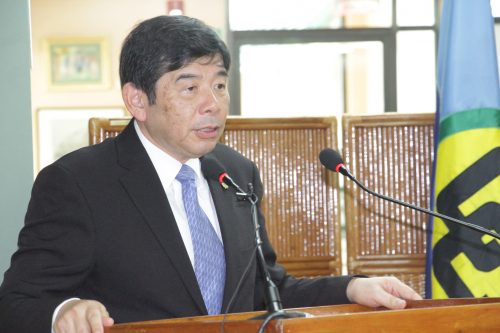
Secretary General of the World Customs Organisation (WCO), Kunio Mikuriya, has emphasized the necessity of having customs administrations in Africa at the forefront of the implementation of the Africa Continental Free Trade Agreement (AfCFTA) with regards to trade facilitation, consumer protection and border security.
Mikuriya who welcomed the entry into force of the AfCFTA, described the free trade agreement as a beacon of progress and economic empowerment for Africa, even as he reaffirmed the WCO’s commitment to supporting African customs administrations through its existing initiatives such as the EU-WCO Harmonized System Programme for Africa, the Mercator Programme and the Security Programme toward achieving its objectives..
The WCO boss stated this in his address at the 11th Ordinary Meeting of the AU Sub-Committee of Directors General of Customs (AUSCDGC) held recently in Kampala, Uganda.
Mikuriya, who shared perspectives on the key areas of the WCO’s work which would directly serve to support AfCFTA implementation, noted that the WCO’s African members had been working diligently to implement WCO instruments and tools, and would benefit from deeper cooperation between the WCO and the AUC.
Addressing the AU meeting, the Commissioner General of the Uganda Revenue Authority (URA), Mrs. Dorothy Akol, underscored the impact that the entry into force of the AfCFTA would have in shaping the future of the African continent, saying the implementation of this powerful tool would boost intra-African trade and economic development, unleashing the potential of an integrated continent.
AU Commissioner for Trade and Industry, Ambassador Albert Muchanga, restated that the theme for the year was a timely, relevant and critical one with respect to the role of Customs, acknowledging the WCO’s dedication to supporting African Customs administrations and expressed the desire for continued fruitful cooperation.
He reminded the Customs Directors General that 1 July 2020 was the date set for implementation of the AfCFTA and expressed the view that a single continental market would serve as a precursor for investment and industrialization.
He continued by advocating for strong commitment to completing the remaining preparatory work, in order to pave the way for AfCFTA implementation.